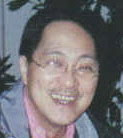GOTCHA By Jarius Bondoc, The Philippine Star, Monday, June 2, 2008
The Malacañang-Meralco tiff looks more like a fight between the Arroyo and Lopez families. Gloria Arroyo drew first blood in blaming the Lopezes, instead of her mulcting Napocor appointees, for costly electricity. Lopez spokesmen countered that the Arroyos were squeezing Meralco to get back at their other controlled firm, critical media giant ABS-CBN. Full-blown war then escalated in the courtroom, boardroom and newsroom.
Eight decades ago in 1929 a similar battle raged between the Lopezes and Arroyos. Setting: Iloilo, the fastest rising city in the Visayas. Self-rule was top issue nationwide. A National Assembly of Filipino legislators had just convened in Manila under Senate President Manuel Quezon, of Partido Nacionalista. New technologies were spurring changes in traditional sugar regions. Among the young entrepreneurs caught up in the modernization tide was Eugenio “Eñing” Lopez, 28.
Iloilo, as all other cities, had a seamy side. A Chinese mestizo named Luis Sañe, alias Sualoy, operated jueteng with impunity. Bribes to civilian and police officials exempted him from law enforcement. It so happened that Eñing was then reviving his late father Benito’s Spanish-language newspaper El Tiempo. Immediately in Sept. 1929 the paper launched a crusade against vice that corrupted the Iloilo government. The jueteng winning numbers were published each day on the front page, playing up official inaction. Personally leading the fight, Eñing came out with one exposé after another, pointing to the highest officials as Sualoy’s protectors. “Eñing did not choose lightweight opponents,” Raul Rodrigo recounts in the book, Phoenix: the Saga of the Lopez Family. They were no less than Governor Mariano Pidal Arroyo, city police chief Marcelo Buenaflor, and congressman-brother Tomas Buenaflor.
Writes Rodrigo: “Marcelo Arroyo was the most powerful man in the province. He was the brother of the late Jose Arroyo, a Nacionalista senator and good friend of Quezon. As the public’s outrage over the corruption began to mount, Arroyo issued a statement saying that jueteng did not exist in Iloilo. That it did and that local officials benefited from it were matters of public knowledge in the city. The question was not what needed to be done, but who had the courage to do it. It turned out, Eñing Lopez did.”
El Tiempo stepped up the pressure. National authorities began to take notice. In Mar. 1930 the Constabulary stormed Sualoy’s vice den, finding enough evidence to jail and eventually deport him to China. The fight narrowed down to Eñing and Arroyo. As El Tiempo became a hot seller, tension gripped Iloilo. A thug known to be close to the governor beat up the editor-in-chief. Arroyo sued for libel; Eñing in turn filed administrative charges. The Lopez clan worried that local violence that abruptly ended his father’s life might befall Eñing too.
Rodrigo continues: “Fortunately, news of the case reached Manila and attracted the attention of Governor General Dwight F. Davis. Governor Arroyo and his cohorts came under minute scrutiny. As a result of the scandals, the Nacionalistas and Quezon began backing away from Arroyo. When Arroyo asked Quezon to recommend to Davis that he be acquitted of the administrative charges, Quezon refused. Instead, Davis swiftly dispatched Judge Manuel Moran (later chief justice of the Supreme Court) to investigate the libel case. After a series of hearings, Moran established that Arroyo and police chief Buenaflor were in fact heavily involved in illegal gambling. They even ran a gambling den as a means of generating money for the upcoming 1931 elections. Moran concluded that Eñing and El Tiempo had not been guilty of libel.”
More evidence of sleaze turned up in Arroyo’s administrative trial. A compadre testified that the governor coddled jueteng runners not only for bribes but also as political ward leaders. In Oct. 1930 Davis sacked Arroyo for corruption.
It is said that the disgraced political family quietly moved to Negros Occidental. Joining them was Jesusa Lacson Arroyo, widow of Senator Jose Pidal Arroyo, the fallen governor’s brother. One of Jesusa’s sons, Ignacio, became the father of First Gentleman Jose Miguel “Mike” and Rep. Ignacio Jr. “Iggy. Mike would in turn sire Reps. Juan Miguel “Mikey” and Diosdado “Dato”.
Eñing would later establish the newspaper Chronicle and broadcaster ABS-CBN, and buy out the Americans from Meralco. The fruit does not fall far from the tree. Eñing’s sons, first Eugenio Jr. and then Oscar, would lead the family holdings company. Third son Manuel would chair Meralco.
Mike and Mikey would themselves be linked to jueteng payola. Exposed for owning a secret bank account under alias “Jose Pidal”, Mike would deny knowing anybody with such name, but Iggy would own up to it. Gloria Arroyo would then claim it as her excess campaign contributions.
* * *
E-mail:
jariusbondoc@workmail.com


